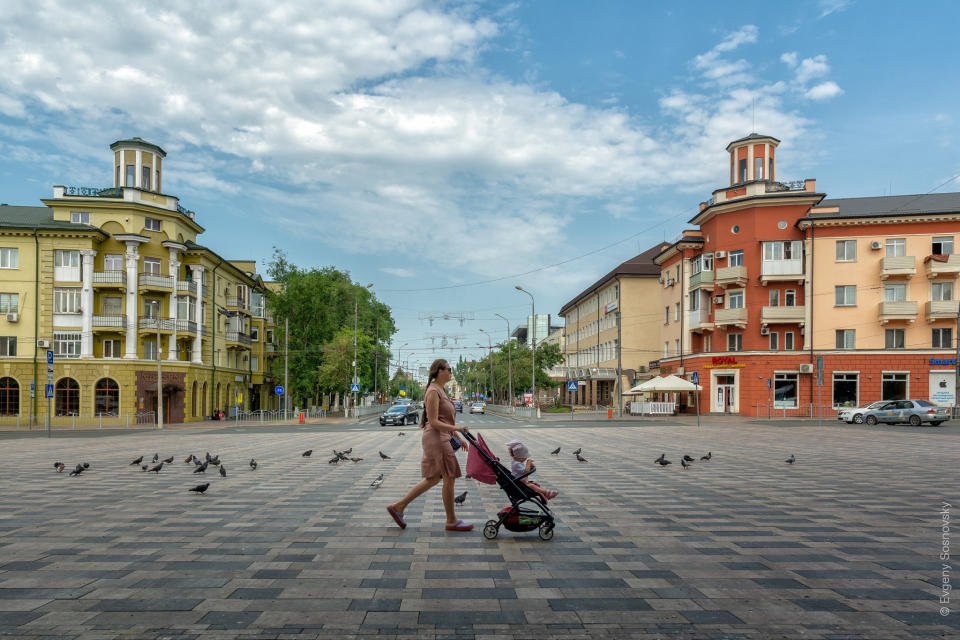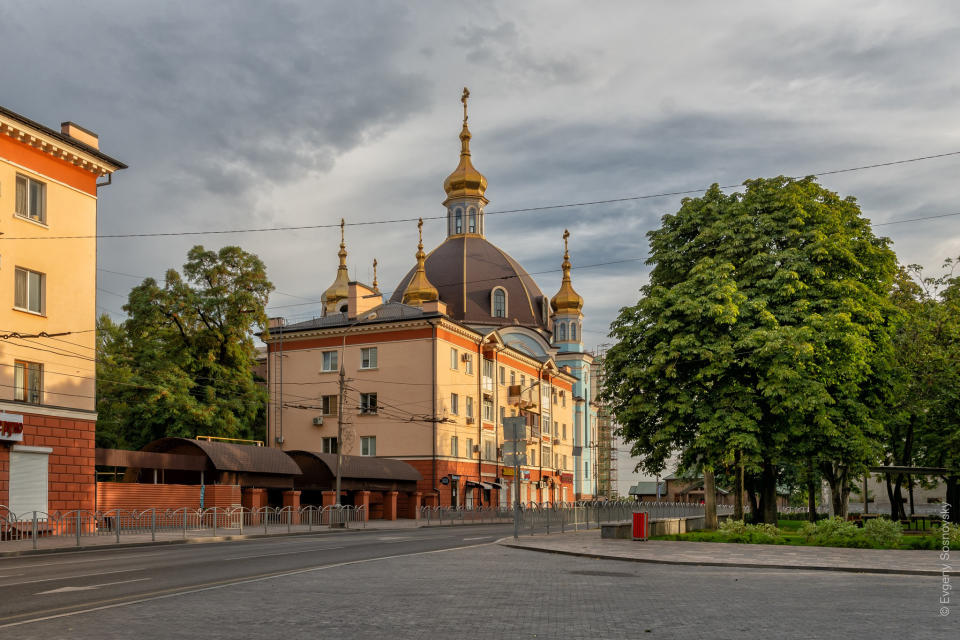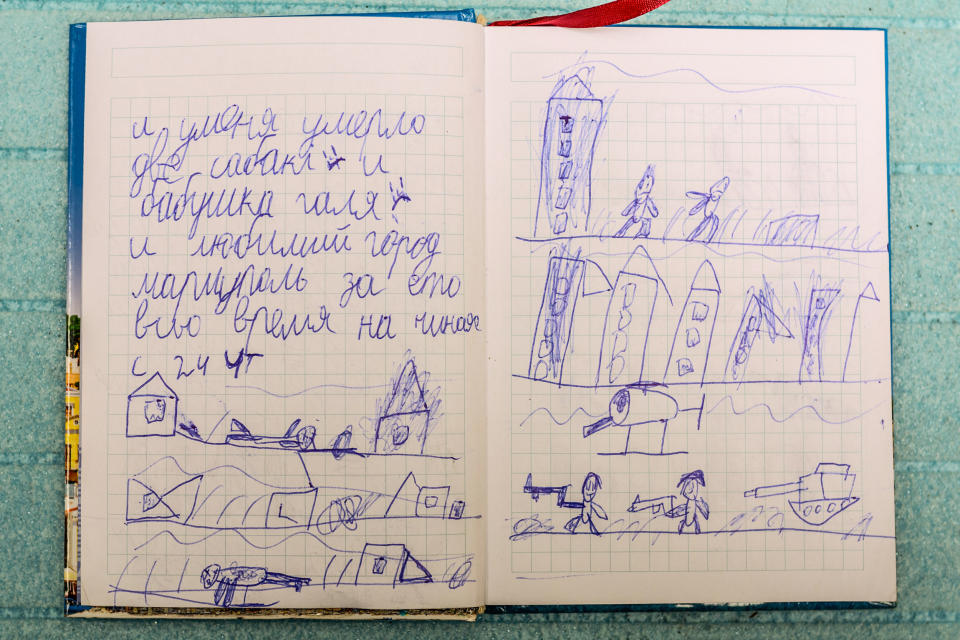His photos once showed a Mariupol full of life. Now they bring tears to his eyes.
Struggling to speak, Evgeny Sosnovsky held the picture he took of his 8-year-old nephew’s diary entry.
“A small boy wrote that his city has died,” Sosnovsky said this month. “That’s all.”
It was one of hundreds of pictures Sosnovsky took in and of his home city, Mariupol. Most show a city full of life and historic buildings like the world-renowned Donetsk Academic Regional Drama Theater. Others feature smiling children ice skating and tending gardens.



But after the Russian invasion in late February, the amateur photographer’s pictures took on a darker tone. He began methodically documenting the city’s destruction by shelling and airstrikes. Stores, homes and the school where his children studied all obliterated by the constant bombardment.
“This is one of the best schools in Mariupol,” Sosnovsky, 57, said this month, pointing to a photo of the school ripped open by airstrikes, its playground covered in rubble.
Perhaps his most dramatic images were captured after a shell hit his 90-year-old mother-in-law Mariya’s house when he was searching for his wife, Svitlana, 56, in late March.

“I was covered by the ruins of the building,” he said, scrolling through an album of the destruction that worsened with each picture. “I started to move my body, and I realized I was alive.” He added that he could not hear and that he had a concussion. Svitlana also survived.
Many residents of Mariupol were not as lucky.
“People were in the basement when the bomb exploded,” Sosnovsky said, pointing to another series of photos of a collapsed apartment building. “They were crushed, and no one could get them out. Their bodies are still there.”

The dead were among thousands of people who Ukrainian officials estimate have been killed in the city since the conflict began. Russian forces have taken control of the area, making it impossible to know the true number of dead.
After having endured more than two months of attacks in Mariupol, Sosnovsky finally made it to the relative safety of Kyiv along with Svitlana and his mother-in-law.

His extended family remains in Mariupol, among them his nephew, who kept the diary as they huddled together in a basement bomb shelter. Looking at the photos Sosnovsky took of the diary entries now brings tears to his eyes.
“My grandfather died. I have a wound on my back, torn skin. My sister has a head injury. My mother has a hole in her leg,” his entry for April 3 reads.
“We are waiting to be bandaged. Mom is the first, I am the second and my sister is third. I’ve got a new friend. Her name is Vika. She is funny and has nice parents.”

NBC News is not naming the boy and his relatives because they fear for their safety.
Among the entries the boy drew pictures of tanks, burning buildings and helicopter gunships.
“You realize that he understood everything that happened and saw everything,” Sosnovsky said. “It’s terrible. When I read the diaries for the first time … it was almost impossible. Very heartbreaking.”

Along with the depictions of war are more innocent pictures. The boy drew an imagined celebration for his coming birthday, complete with a cake and friends in party hats.
“I woke up and smiled yesterday,” he wrote. “My grandma went for water and returned. By the way, my birthday is soon.”
But the reality of childhood in a city under siege broke through.
“My two dogs were killed, and my grandma Halya,” he wrote. “And my favorite city, Mariupol, has died.”
